The Science Behind AI Video Colorization: How It Works
Black-and-white films and historical footage capture pivotal moments but lack the emotional resonance of color. As archives digitize classics and families rediscover old reels, AI video colorization has emerged as a revolutionary tool-transforming monochrome into lifelike color. But how does artificial intelligence accurately paint history? This article demystifies the science behind AI-powered color revival and its real-world magic.
Part 1. How AI Colorization Works: The Science Explained
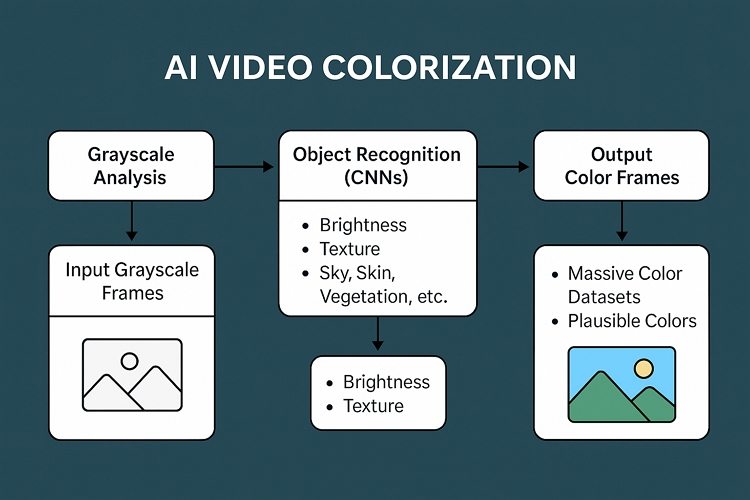
1. The Basics: From Pixels to Semantic Understanding
AI-powered video colorization is not about randomly guessing colors. It involves multi-level analysis of visual content using deep learning.
- Grayscale Analysis:
- Object Recognition (CNNs):
- Color Prediction (GANs):
AI starts by studying pixel-level luminance and texture in grayscale frames, detecting edges, shadows, and gradients that imply object contours and depth.
Convolutional Neural Networks (CNNs) help the AI detect and differentiate objects like sky, trees, faces, and buildings. These neural networks are trained on millions of color images to learn the features associated with specific objects.
Once objects are recognized, Generative Adversarial Networks (GANs) predict plausible color mappings by referencing massive datasets of real-world color footage. The AI doesn't just assign random colors-it chooses contextually appropriate hues.
2. Key Technological Breakthroughs
To move beyond image colorization to video, additional challenges arise. Here's how AI overcomes them:
- Temporal Consistency (Optical Flow + LSTM):
- Contextual Learning:
- Adversarial Training:
Video requires color consistency across frames. AI uses optical flow algorithms and Long Short-Term Memory (LSTM) networks to track movement and maintain consistent coloring across frames-even for fast-moving objects.
Scene semantics matter. A sunset scene is more likely to have warm hues, while a rainy alley is tinted with grays and blues. AI learns these associations to improve color realism.
GANs use a "discriminator" to judge whether colorized frames look real. The generator is constantly refined based on this feedback, increasing color authenticity over time.
3. Challenges and Solutions
- Blurry Frames: AI uses super-resolution or denoising to enhance frames before colorization.
- Fast-moving Objects: Temporal smoothing techniques and motion tracking help minimize flickering or color jump.
- Historical Accuracy: For archival footage, trained AI can reference verified palettes (e.g., military uniforms, vintage vehicles) for historically faithful coloring.
Part 2. Real-World Use Cases of AI Video Colorization
1. Historical Restoration
Colorizing black-and-white documentaries, wartime footage, and early cinema helps modern viewers connect emotionally with the past. Institutions and media studios use AI to restore and republish historical archives.
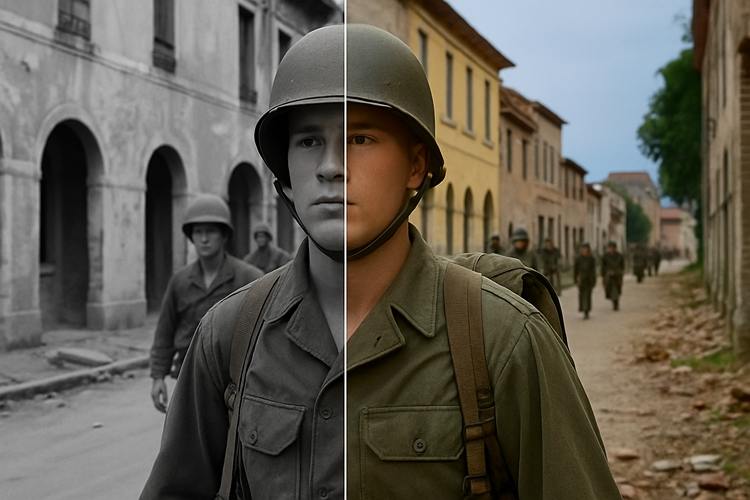
2. Family Footage Revival
Old VHS tapes or 8mm reels of weddings, birthdays, and daily life gain new emotional depth when colorized. AI makes this process accessible to everyday users.
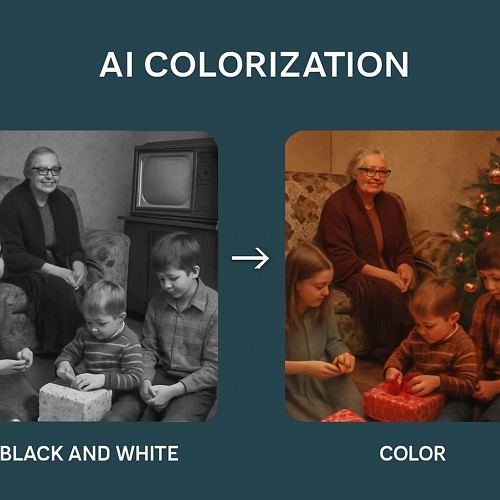
3. Social Media Content Creation
Colorized vintage content performs well on platforms like YouTube, TikTok, and Instagram. Creators use it to tell stories or create viral trends.
4. Educational and Museum Installations
Museums and educational institutions employ AI colorization in exhibits to engage audiences and bring context to black-and-white photographs or videos.
Part 3. How to Colorize Videos with HitPaw VikPea
Bringing all these technologies together, HitPaw VikPea offers an intuitive, high-performance way to colorize videos with just a few clicks-no coding or technical background required.
Key Features of VikPea's Colorize Model:
- High-Precision Restoration: Trained on millions of scenes, it renders skin tones, foliage, and skies with rich fidelity.
- Temporal Smoothness: Avoids color flicker using proprietary frame-to-frame smoothing tech.
- CloudAcceleration: Colorization speed is significantly improved, even for long videos.
- Batch Processing: Segment and colorize large videos with minimal manual effort.
- Flexible Output Options: Customize resolution, cropping, frame rate, and format.
- Real-Time Preview: See side-by-side before/after comparisons in real time.
Step-by-Step: How to Colorize a Video in VikPea
Step 1.Install and Launch HitPaw VikPea on Windows or Mac. Choose AI Model feature from the left sidebar. Drag and drop your file or use the file selector to import videos in MP4, MOV, AVI, or other formats.

Step 2.Under the AI Color section, there are four specific models. You can choose B & W Colorization, SDR to HDR, Color Enhancement or Low-light Enhancement Model. For a black and white video, we recommend Colorize Model.

Step 3.Set output resolution, frame rate, and export format. Optional: use crop or segmentation if dealing with large files.

Step 4.Click Preview button to compare before and after frames.

Step 5.Click Export button to render and save your new, vibrant video.

Part 4. Tips for Best Results
To ensure optimal output from AI colorization tools like HitPaw VikPea, follow these tips:
- Use High-Resolution Source Footage: AI performs better with clearer input.
- Prefer Static or Slow Scenes: Fast camera movement may affect temporal consistency.
- Keep Videos Manageable in Length: Segment long videos to reduce processing time.
- Combine with Other AI Models: Use Face Model for detailed facial reconstruction when needed.
Conclusion:
AI video colorization isn't just a gimmick-it's a powerful storytelling tool. It transforms how we interact with historical footage, family memories, and creative content. With user-friendly tools like HitPaw VikPea, this once-expert-only technology is now available to anyone with a story to tell or a moment to relive.
Whether you're restoring World War footage, colorizing your grandparents' wedding video, or creating engaging social media content, AI empowers you to reimagine the past-in vivid, stunning color.
Disclaimer: Please ensure that you have the legal rights to modify and distribute any video you colorize, especially for commercial or public use.







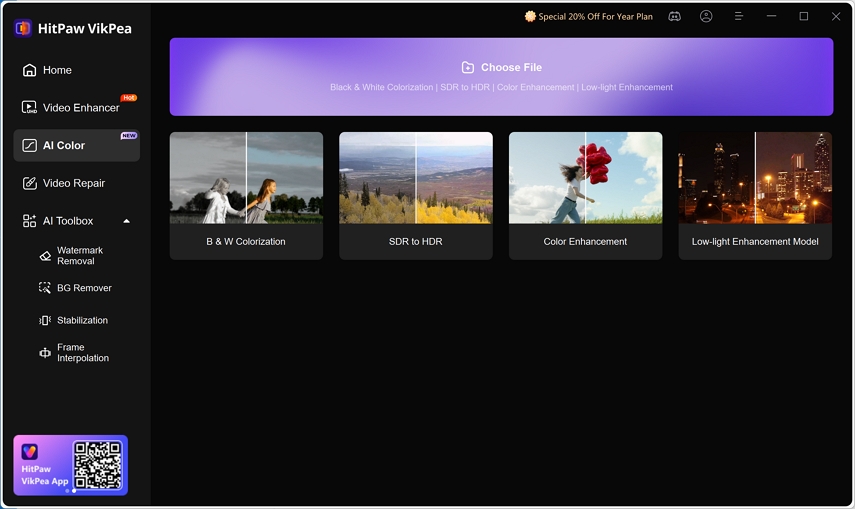
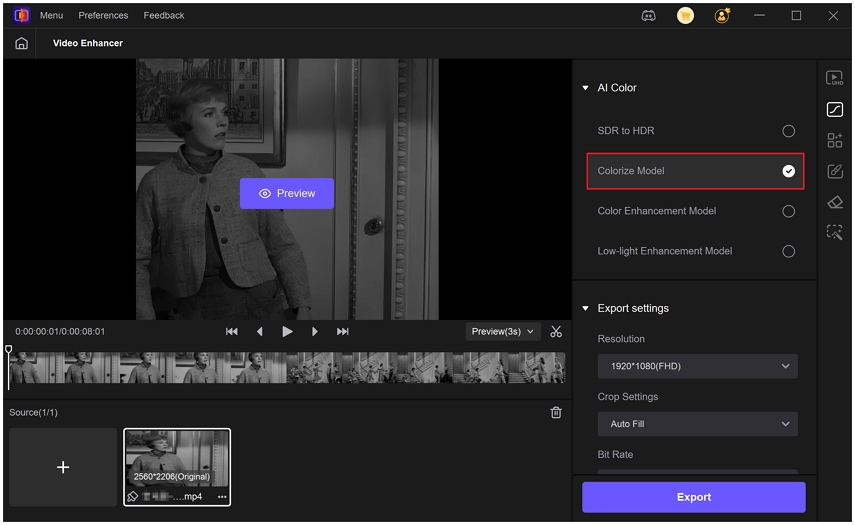
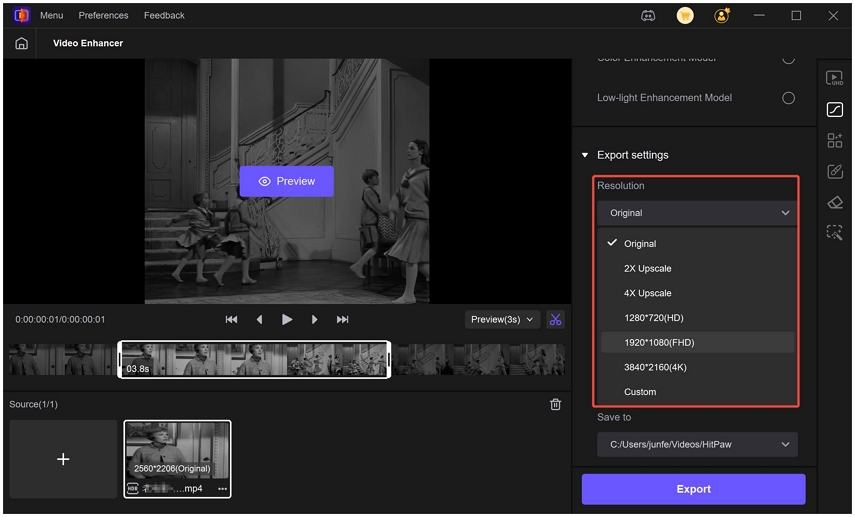
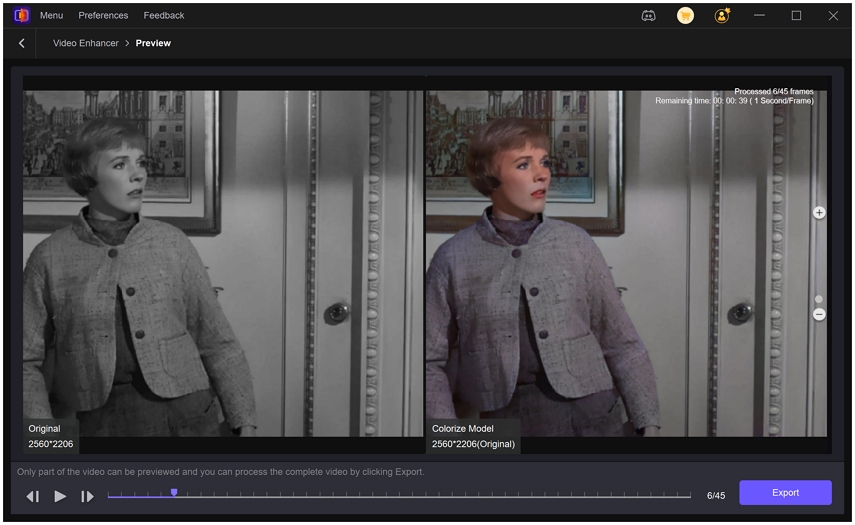
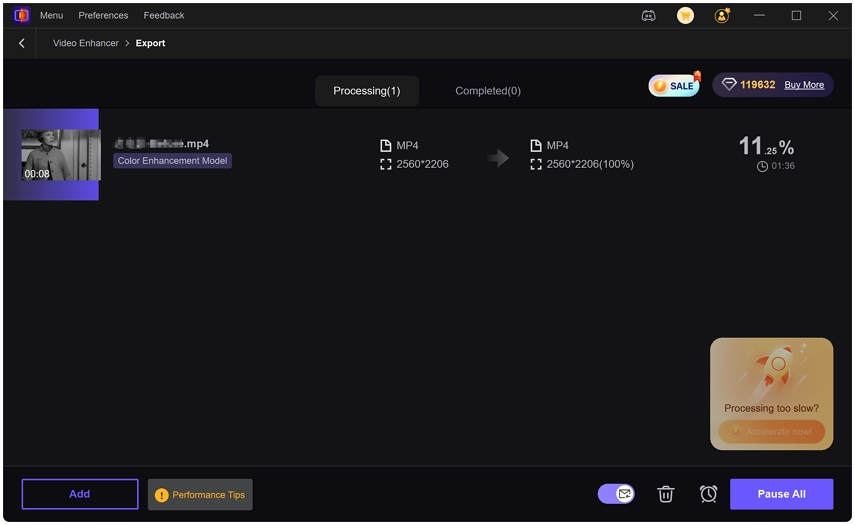
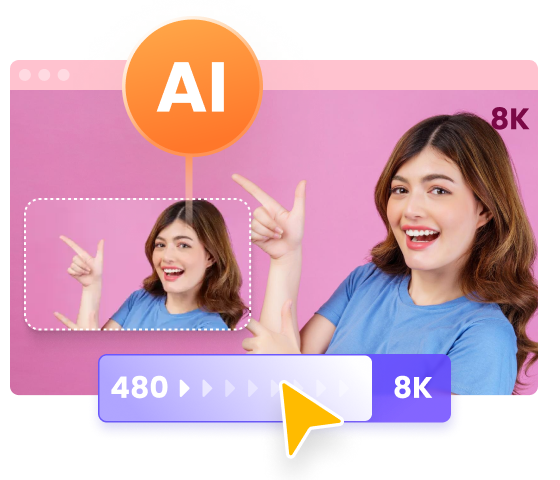
 HitPaw Univd (Video Converter)
HitPaw Univd (Video Converter) HitPaw VoicePea
HitPaw VoicePea 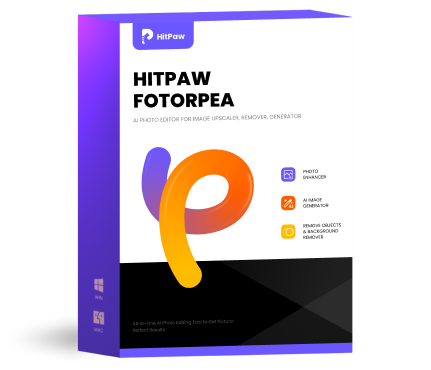 HitPaw FotorPea
HitPaw FotorPea



Share this article:
Select the product rating:
Daniel Walker
Editor-in-Chief
This post was written by Editor Daniel Walker whose passion lies in bridging the gap between cutting-edge technology and everyday creativity. The content he created inspires the audience to embrace digital tools confidently.
View all ArticlesLeave a Comment
Create your review for HitPaw articles